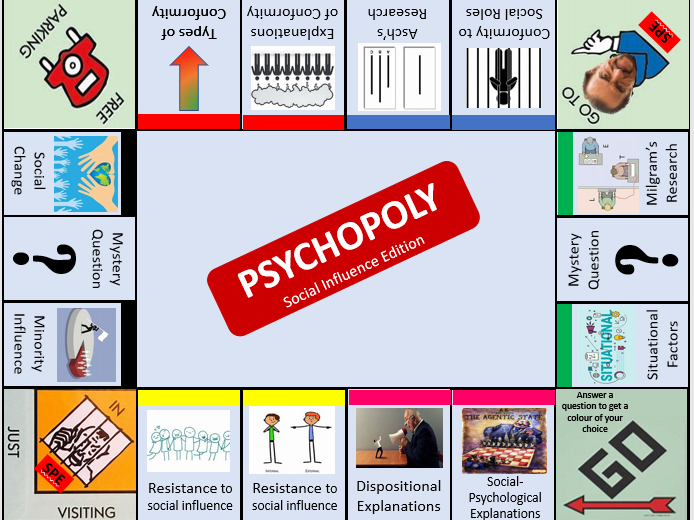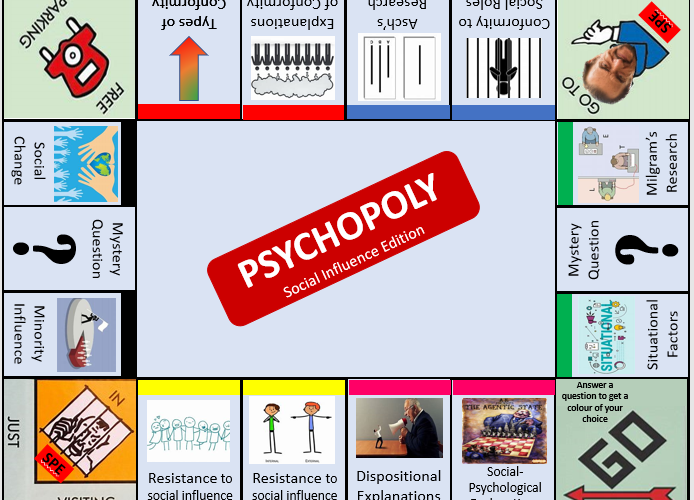Table of Contents
In the ever-evolving landscape of education and child development, the allure of board games may seem like a quaint and nostalgic notion. However, beneath the tangible tokens, colorful game boards, and the camaraderie they foster, lies a dynamic intersection of psychology and human behavior. The psychology of board games and student behavior is a multifaceted field that has garnered significant attention from educators, psychologists, and even professional essay writers online, as it offers valuable insights into how traditional games can shape cognitive, social, and emotional development in educational settings.

The relevance of exploring the psychology of board games within the context of student behavior is both timely and significant. As modern education systems continue to grapple with the challenges posed by the digital age, understanding the impact of traditional board games on young minds becomes crucial. Board games offer a unique blend of cognitive stimulation, social interaction, and emotional engagement that can profoundly influence how students behave, learn, and grow. By delving into this subject, we aim to shed light on an often-overlooked aspect of education and child development.
Board Games
Board games come in a myriad of forms, each with its own set of rules, objectives, and strategies. From classic games like chess and Monopoly to modern favorites such as Settlers of Catan and Pandemic, board games encompass a vast spectrum of experiences. These games involve physical components like boards, cards, dice, and tokens, setting them apart from video games or digital entertainment. Understanding the diversity of board games is essential as it forms the foundation for grasping their psychological impact.
To truly appreciate the significance of board games in human behavior, we must journey back in time. Board games have a rich history that stretches across civilizations and epochs. They have been used for entertainment, education, and cultural expression for thousands of years. Examining this historical tapestry not only reveals the universality of board games but also underscores their enduring appeal as tools for shaping human behavior.
Exploring the psychology of board games and student behavior is not only an engaging research topic but also a subject that piques the interest of individuals seeking to understand how these games can influence student development, making it a compelling area of inquiry for those who may want to “write my essay” on the subject. In an era dominated by smartphones, tablets, and video games, the resurgence of board games might seem surprising. Yet, board games are experiencing a renaissance, with growing popularity among people of all ages. This section will explore the factors driving this resurgence, including a longing for face-to-face social interaction, a desire for tangible experiences, and a reaction to screen-based lifestyles. Understanding this resurgence sets the stage for a closer examination of their psychological benefits.
Also Read: What Does Philippians 4:13 Mean?
The Psychological Benefits of Board Games
Board games often present players with complex challenges that require strategic thinking and problem-solving. Critical thinking is at the heart of many board games. Players must weigh options, anticipate opponents’ moves, and adapt their strategies accordingly.
Board games serve as excellent vehicles for fostering communication and collaboration. Emotions often run high during board game sessions, providing opportunities for players to practice emotional regulation.
In our fast-paced world, leisure activities like board games play a crucial role in promoting mental well-being. By unraveling the psychological intricacies of board games, this article aims to provide a comprehensive understanding of their potential impact on student behavior and development.
Board Games and Student Behavior
Board games are not just entertaining; they are powerful tools for enhancing cognitive skills. When students engage in strategic thinking, problem-solving, and planning within the context of a game, they are actively exercising their brains. Such cognitive development can translate into better academic performance, as students become more adept at processing information and making connections.
Board games require players to maintain attention and focus on the game’s progression, rules, and the moves of their opponents. This sustained attention can spill over into other areas of a student’s life, including their studies.
Board games provide a structured and enjoyable platform for students to interact with their peers. Whether collaborating or competing, they learn valuable social skills, such as effective communication, sharing, and sportsmanship.
Many board games involve teamwork or negotiation, requiring players to understand each other’s perspectives and work together. These collaborative elements teach empathy and cooperation, two essential qualities for building healthy relationships. Board games can be strategically employed as tools for behavior modification. By offering rewards or consequences within the game context, educators and parents can motivate students to exhibit desired behaviors.
Many board games involve waiting for one’s turn, dealing with setbacks, and coping with uncertainty. These experiences can teach students self-regulation, patience, and resilience.
Implementing Board Games in Educational Settings
Integrating board games into the curriculum can be a powerful way to enhance learning and behavior simultaneously. Not all board games are created equal, and selecting the right ones for educational purposes is essential. In a world dominated by screens, concerns about screen time are valid. To harness the benefits of board games fully, it’s crucial to ensure that all students have access and can participate.
Best Practices and Tips
For Educators and Parents
Before introducing board games into the educational environment, define specific learning or behavioral objectives. Determine what skills or behaviors you aim to enhance through gameplay. Choose board games that align with your objectives and the age group of the students. Consider games that offer opportunities for skill development and social interaction relevant to your goals.
Clearly explain the rules of the game to students, ensuring they understand how to play. Establish guidelines for sportsmanship, cooperation, and respectful behavior during gameplay.
Continuously assess how board games are impacting student behavior and development. Be open to adjusting your approach or game selection if needed to better meet your objectives.
Use board games as a catalyst for discussions. Encourage students to share their thoughts and feelings about the game, their strategies, and their interactions with peers. After playing a game, engage students in reflection exercises. Ask them to consider how the skills they used during gameplay can be applied to real-life situations.
Introduce a variety of board games to expose students to different challenges and experiences. This can help keep the engagement level high and cater to diverse learning styles. Foster an atmosphere where students feel safe to make mistakes and learn from them. Avoid overly competitive environments that may discourage some students.
Emphasize games that require teamwork and cooperation. Teach students the value of working together to achieve common goals. Recognize and celebrate both small and significant achievements in board games. This positive reinforcement can boost self-esteem and motivation.
Also Read: What Are Annual Profections and How To Calculate Yours?
For Game Selection
- Consider Age and Skill Level: Ensure that the chosen board game is age-appropriate and matches the cognitive and social development of the players. Some games may be too complex for younger students, while others may not provide enough challenge for older ones.
- Align with Learning Objectives: Select games that directly align with the specific learning or behavior objectives you have set. For example, if you aim to improve critical thinking, choose games that require strategic decision-making.
- Balance Competition and Cooperation: Depending on your goals, choose games that strike the right balance between competition and cooperation. Cooperative games can foster teamwork and empathy, while competitive games may enhance strategic thinking and sportsmanship.
- Incorporate Variety: Introduce a mix of board games to keep engagement high. Include games that focus on different skills, from problem-solving and memory to creativity and negotiation.
- Consider Theme and Interest: Take into account the interests of the students. Games with themes or topics that resonate with them are more likely to engage and motivate them.
- Read Reviews and Recommendations: Research board games online or consult educational resources and reviews to discover games that have been successful in achieving similar educational goals.
- Adaptability: Look for games that can be adapted to suit your specific objectives. Some games come with variations or can be modified to emphasize certain skills or behaviors.
- Test Play: Before introducing a game to students, play it yourself or with colleagues to familiarize yourself with the rules and dynamics. This will help ensure a smoother experience during classroom or home play.
By following these best practices and tips, educators and parents can harness the full potential of board games as educational tools to improve student behavior, enhance learning, and foster holistic development.



